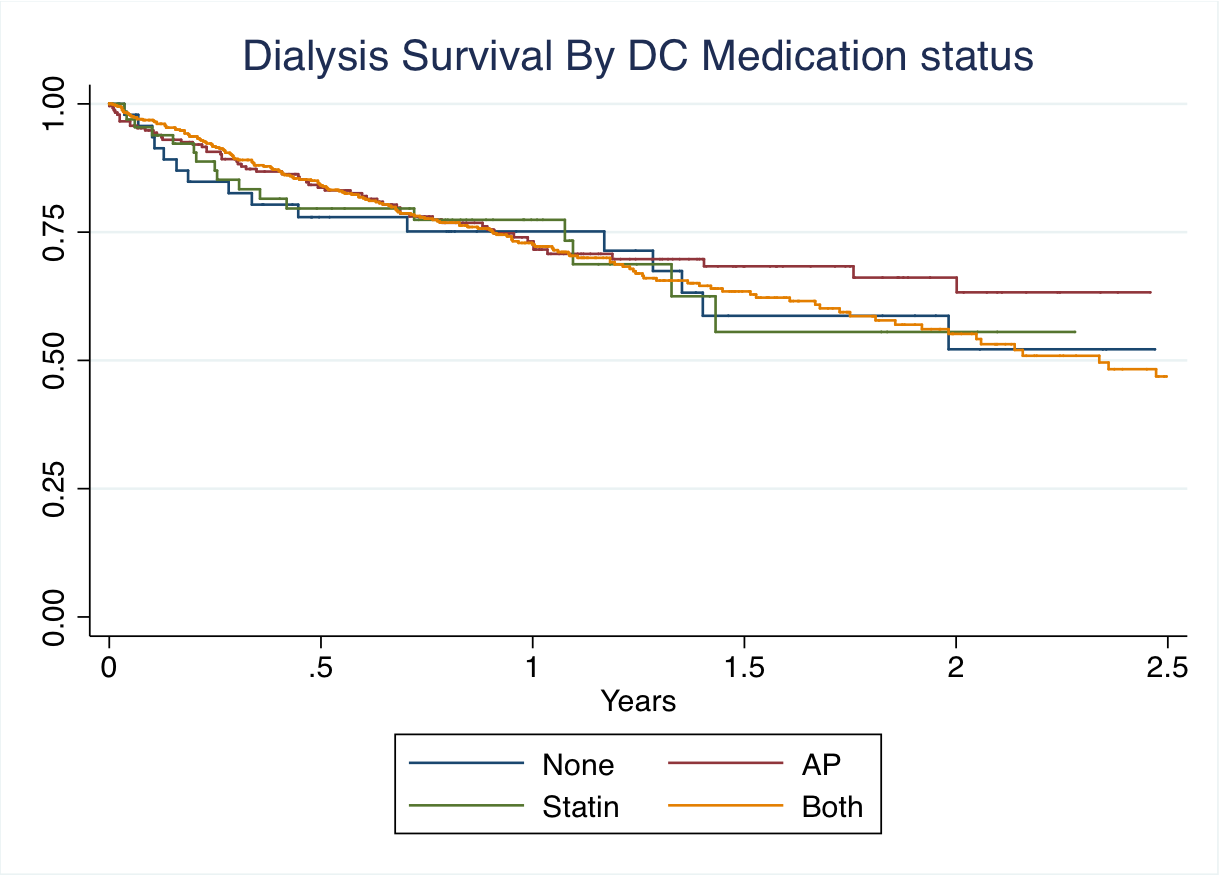Back to 2015 Annual Symposium Program
The Effect Anti-platelets and Statins on Peri-Operative and Long Term Outcomes in Dialysis Patients Undergoing Arterial Surgery
Trissa Babrowski, MD1, Randall R. DeMartino, M.D., M.S.2, Christopher L. Skelly, MD1, Ross Milner, MD1, Darwin Eton, MD1, Robert C. Steppacher, Jr., MD1.
1University of Chicago, Chicago, IL, USA, 2Mayo Clinic, Rochester, MN, USA.
OBJECTIVES:
The incidence of peripheral arterial disease (PAD) is roughly twice that in patients with end-stage renal disease (ESRD) as compared to the general population. ESRD PAD presents challenges as the disease process is accelerated and response to treatment inferior than non-ESRD PAD. The benefits of medical management in PAD have been clearly demonstrated. However, less is known on the benefit of anti platelet (AP) and statin use in the ESRD PAD population. Our aim is to determine if the use of anti-platelet agents and statins have any effect on perioperative and long-term outcomes for patients with PAD and ESRD.
METHODS:
Perioperative demographic and medication usage data from the Vascular Quality initiative (VQI) from 2005 to 2013 for ESRD patients undergoing open or endovascular aortic aneurysm repair, carotid endarterectomy, carotid stenting, and supra or infra-inguinal bypass was analyzed to determine the effect of medication utilization on cardiovascular morbidity long term mortality. The association between optimal medication utilization and mortality was determined using life table methods with Cox proportional hazards techniques.
RESULTS:
A total of 1394 patients were included in the analysis. At two years, no significant difference in early or late cardiovascular morbidity or mortality was seen in ESRD PAD patients regardless of the use of AP and/or Statin. (Figure 1)

CONCLUSIONS:
The use of AP and statin medications in the perioperative period do not affect mortality and cardiovascular morbidity in the ESRD PAD population as recorded in the VQI. Current evidence does not support routine use of these medications for risk reduction. Future research is warranted to see if any subgroup would benefit from more intensive medical treatment.
Back to 2015 Annual Symposium Program
|







